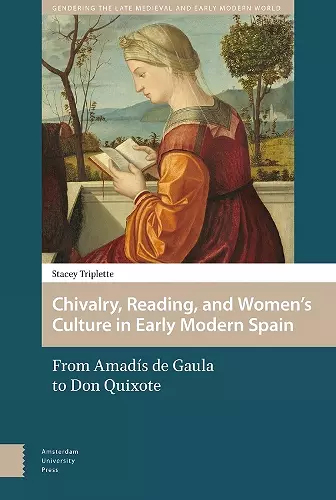Chivalry, Reading, and Women's Culture in Early Modern Spain
From Amadís de Gaula to Don Quixote
Format:Hardback
Publisher:Amsterdam University Press
Published:7th Aug '18
Should be back in stock very soon

This non-fiction hardback, "Chivalry, Reading, and Women's Culture in Early Modern Spain" from Stacey Triplette, was published 7th August 2018 by Amsterdam University Press.
ISBN: 9789462985490
Dimensions: unknown
Weight: 480g
214 pages